Alone on Calypte
Torren went home to Australia for a visit, and I stayed with the boat. Here's how it went.
It’s been about five months since we started our trip, and Torren and I have traveled nearly 2,500 nautical miles in that time. We know nothing about sailing or boat maintenance, and our collective common sense probably rates at a 4 out of 10, but we’ve made it this far. We have made it to the wild edges of western Sumatra, and now I’m on my own. Torren went home to see his Granny in Australia, and I stayed with Calypte. He is planning to be gone for two weeks and I agreed to take care of the boat. So here I am, trying not to sink it.
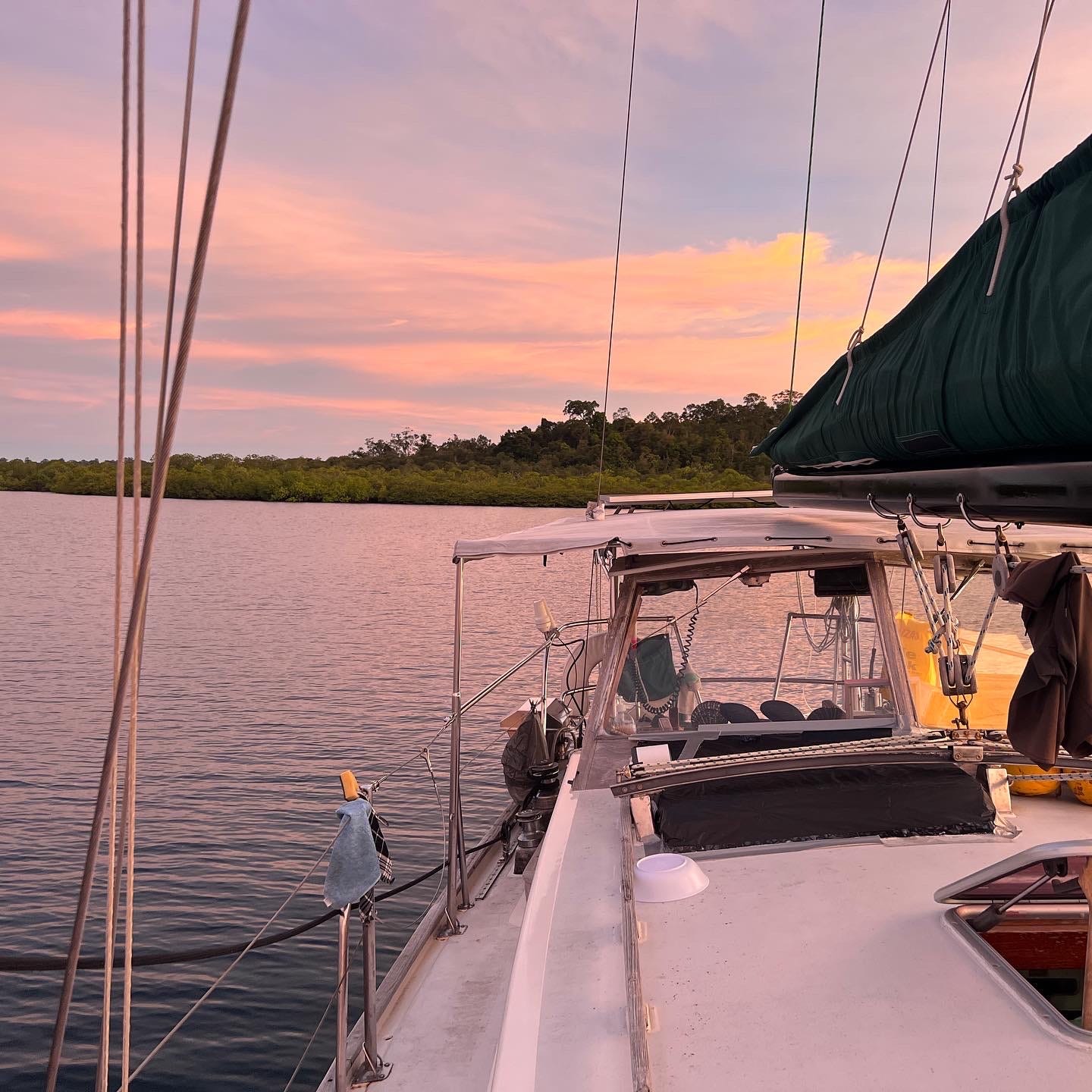
I woke up early this morning to strong northerly winds, which then suddenly switched to howling out of the south east. Calypte was doing three sixties over her anchor, and the rain was torrential. I laid under my little fan, listening to the weather, and wondered if anything was getting blown away up on deck. I really, really didn’t want to get up and check, but in the end I had no choice. My board bag was literally getting ripped off from around the boards, and was flapping violently against the life lines like a head bashing punk rocker. Back in the cabin, I moved a series of bowls around to catch the water leaking into the dish cabinet, onto the bed, above the fridge. I opened our navigation app and made sure the anchor wasn’t dragging. Then I turned the kettle on, and boiled water for coffee.
The squall passed about an hour later, and I went outside to pour a bucket of fresh rainwater over my salty hair. The sun was just coming up, and the peach colored sky twirled and danced above the mangroves that surrounded Caltype in every direction.
I’ve never been alone on a boat before, and I’ve never spent so much time in such a remote part of the world. The Batu Islands are an archipelago, thrust out of the water by volcanic activity, and surrounded by reefs and waves. Many of the islands are covered in lush, primary rainforest and a population of clouded leopards has been recorded here. I’m anchored in the north, in a mangrove neighborhood where my only neighbors are crocodiles and a few fishermen. It is hot, and on calm nights great swarms of insects fly out of the jungle and straight into the boat. Most nights have been stormy though, with me in the fetal position, frantically trying to ignore my imminent death, and shaking like a chihuahua with every new burst of lightening.

After the squall, the wind turned to a light northerly, and I knew somewhere would have surf. I decided to finish my coffee before refueling the dinghy and setting off in search of waves. It’s a surreal feeling to be just me out here in this wild place, engulfed in a quiet I have never experienced before. As I sipped, a fisherman passed by in a small dugout canoe that sent glittering ripples towards Calytpe. He must have been out all night looking for squid or lobster.

The locals here are brave. They dive, in the dark, in crocodile infested waters. They go out to sea in rickety old boats, without weather forecasting services. They are self reliant. Most people on these islands live hand to mouth, surviving mostly off of coconuts, rice, and whatever they can pull out of the sea. It is subsistence, profound subsistence, sunburnt and dauntless. I’ve been out here seven days, and they have been out here for generations, living as a part of this place, far away from grocery stores or hospitals or roads. I wonder how that would feel. Another fisherman stopped by (my friend Irfan) , and asked if I wanted to buy squid. Here, they call it cumi cumi, and I bought two small ones. For lunch, I’ll fry them up in butter and garlic.

I can’t stop thinking about what it means to be alone, to be isolated. It’s a feeling that is very much removed from modern life. Would I be able to take care of myself out here if I got seriously injured? Would I know how to fix the engine or repair the hull if I needed to? I don’t even know how to catch a fish, if I’m being perfectly honest. The last time I tried, I caught a freakin’ seagull, but that’s a story for another time. There is so much to prove to myself when I’m alone, so much to be aware of. The weather is my biggest concern, I am existing at its mercy and I’ve never been so aware of the sky or its moods.

Last night at sunset I surfed a left about a fifteen minute dinghy ride from the boat. It was head high and perfectly glassy, a magical night in the water. Just before dark, an angry purple storm appeared on the horizon and moved quickly towards my anchorage. I had to paddle back to the dinghy and pull the anchor as fast as I could, arm over arm, praying as I did that it wouldn’t get stuck on the reef. Once the anchor was up, I started the engine, and headed at full throttle for the boat. The storm was on my back the entire way, and I had to navigate past shallow sandy bits and through a maze of floating debris. Halfway back, I accidentally kicked the bung out of the dinghy and water began to rapidly fill the boat. I was scrambling, trying to steer with one hand, grab the bung with another, and somehow couldn’t find it in the mess of floating jetsam filling my cluttered dinghy. To make matters worse, the painter line somehow got sucked through the bunghole (haha..I’ve waited my whole life to use bunghole properly in a sentence) and I had to kill the engine to avoid it getting tangled in the propeller. The wind was picking up, and the storm was minutes away. Somehow, I didn’t sink the inflatable dinghy, but it was a moment of pure chaos, a moment of clumsiness, a moment among many like it for me out here. I just managed to make it home as the rain started, and was able to shut the hatches and tie everything down before the storm.
Managing life moment to moment in this way is very new to me, and I think it’s calming my naturally anxious mind. Yes, I get scared. Yes, I do a lot of stupid stuff. My thought patterns are different than they ever have been though. I’m spending less time worrying about what I don’t have, or stressing over my inadequacies; instead, I am primarily concerned with what is actually happening, with the world as it is. Although it has only been a week, and tomorrow I might totally freak out, I’m glad to be here. When Torren is around, I let him take so much of the burden off my shoulders. I let him watch the weather, I depend on him to react when things go wrong. With him gone, I already feel much more capable of taking care of the boat alone, and that is a truly empowering feeling.
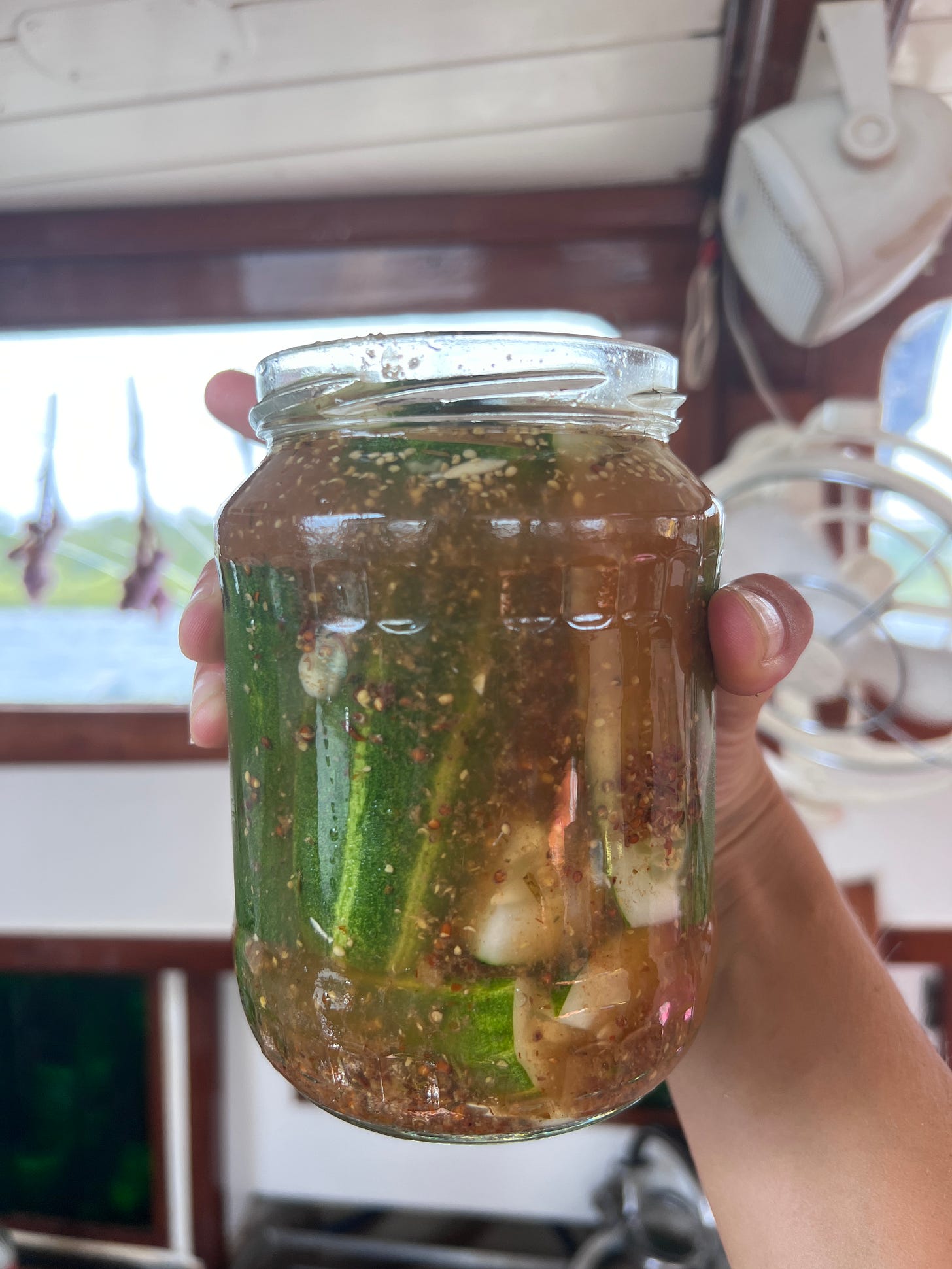
During this time I’ve thought a lot about the knowledge, the strength, and the worldview that would be required to live on these islands as the locals do. Culturally, intimately, ecologically - the people who have grown up and old out here must have an entirely different way of interacting with the world around them and with each other. Surely, these communities have a great deal to teach people like me who grew up mostly in the suburbs, inundated in a capitalist society and removed from nature in many ways. I’m getting a glimpse into a profound and new (to me) way of living out here - one grounded in pragmatism, ecology, and a weird blend of introduced religion and old traditions. Head hunting only died out a generation ago on these islands, and the cultural remnants of it are still readily apparent. Last year, a man walked down the main street of a nearby town with a human head dangling from his hand. Interestingly, there are Christian churches all over these islands and many of the villages practice a complicated mixture of Christianity and animism.
Women here are sold by their families as wives, and young men take out huge loans to afford them. The average price for a wife in the Batu Islands is around ten million rupiah or ten thousands dollars, a nearly impossible sum for most people out here, so everyone is in debt to everyone else. Young men are never allowed to be alone with a woman, and so I have had many teenage boys stop by the boat to chat and revel in a moment alone with a girl. They have all been respectful, funny, and nonthreatening, mostly interested in why I am out here, but I have remained guarded to be on the safe side. There are ways of being out here, rules and norms and belief structures that I will never be able to understand - and yet I have been met with so much kindness and generosity. One fisherman friend, Timo, helped me siphon water out of my petrol when my dinghy tank got flipped in a big storm. Another cheeky but hilarious guy, Jewy, brings me lobster and seashells. Some of the younger locals surf, and we share waves, and hoot and holler for each other. Women, of course, are mostly at home and it pains me to think about living in this tropical paradise without being allowed to swim or surf. I know that, to them, my way of life must look equally strange. Definitely, both our cultures are problematic in different ways. At least out here, where there is no insulation between the health of the environment and the health of the community, life is rooted in Earth. At home, it is much easier to separate ourselves from the intricate web of life that supports us. Here, there is no such separation.
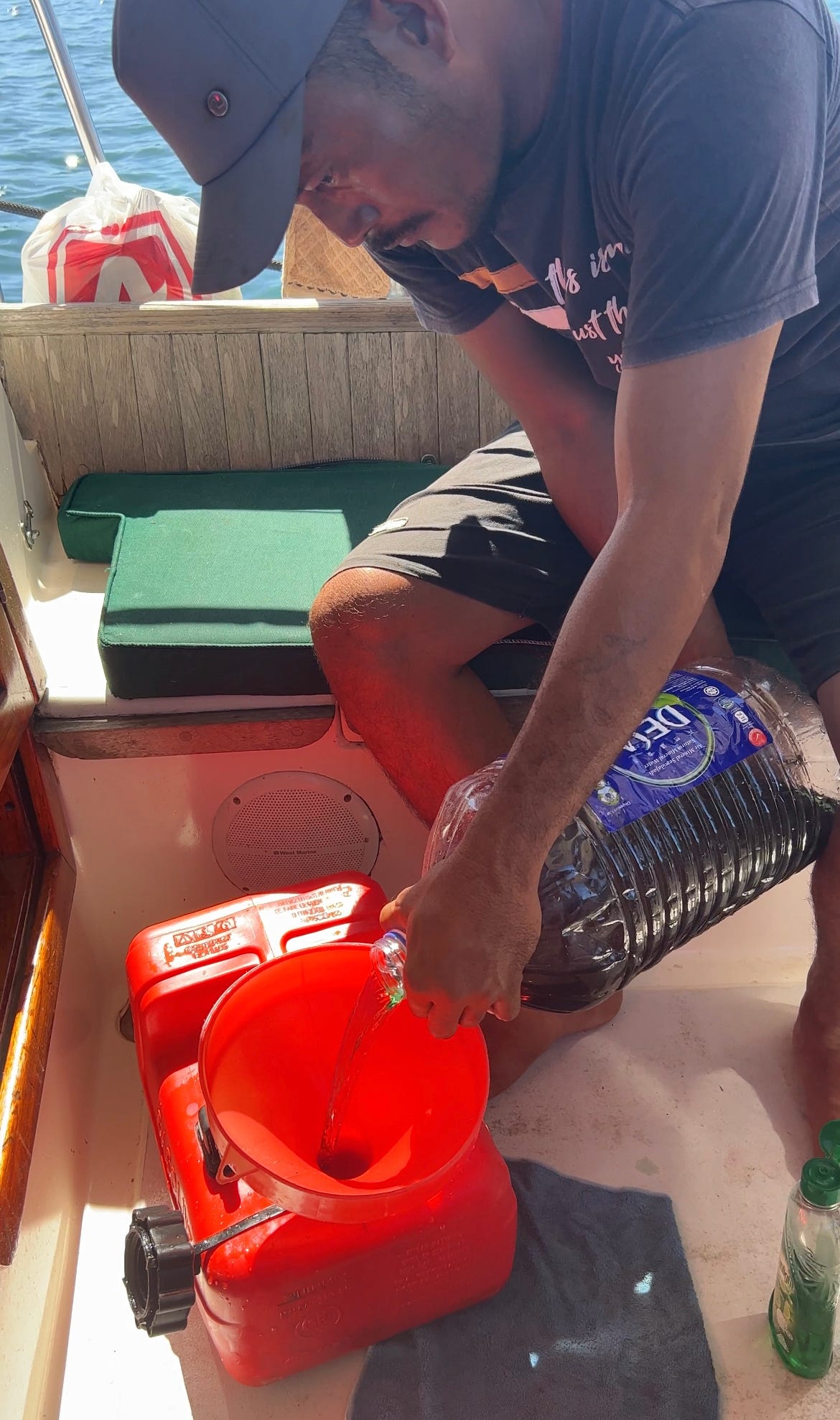
Out here, right now, seven days in and with seven more to go, I am alive. I am happy. I have a full heart and a brain swimming with stupid ideas and so many inconsistencies. I am learning to trust myself, and I am facing my fears. The experience of living alone on a floating home is rare, and every moment of it is a true privilege. Even this one, staring at my laptop, while the wind howls outside my window, and the rain falls steadily. My pillow is moldy, my bedsheet is damp, my boat is leaky, my fridge is full, my spirit is free and my horizon is limitless. Torren will be back soon, but for now I’ll pretend to be feral. I’ll pretend to be wild, self-reliant, untamable, immutable, unabashed, and, most importantly, competent. I won’t sink the boat.







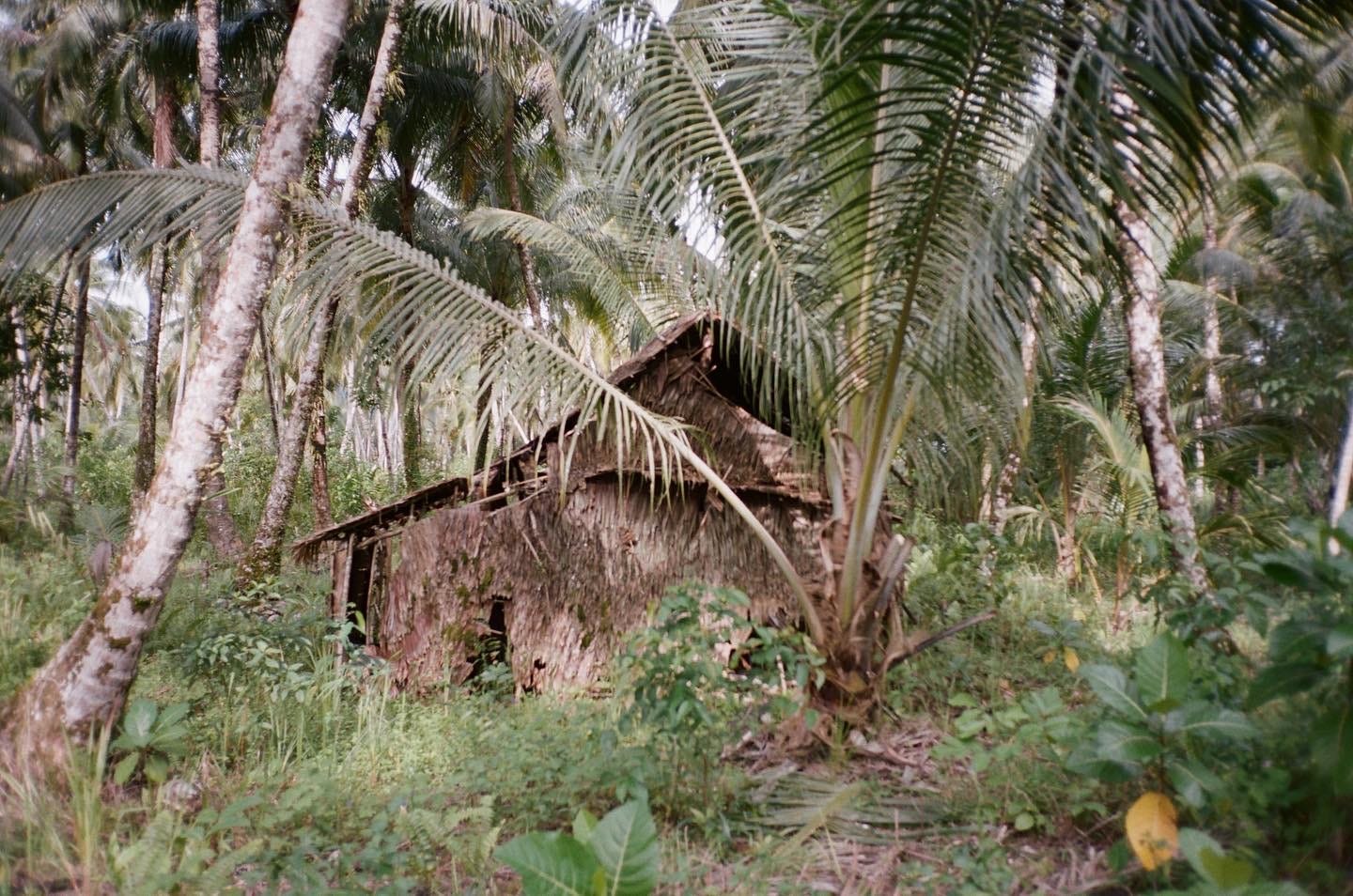
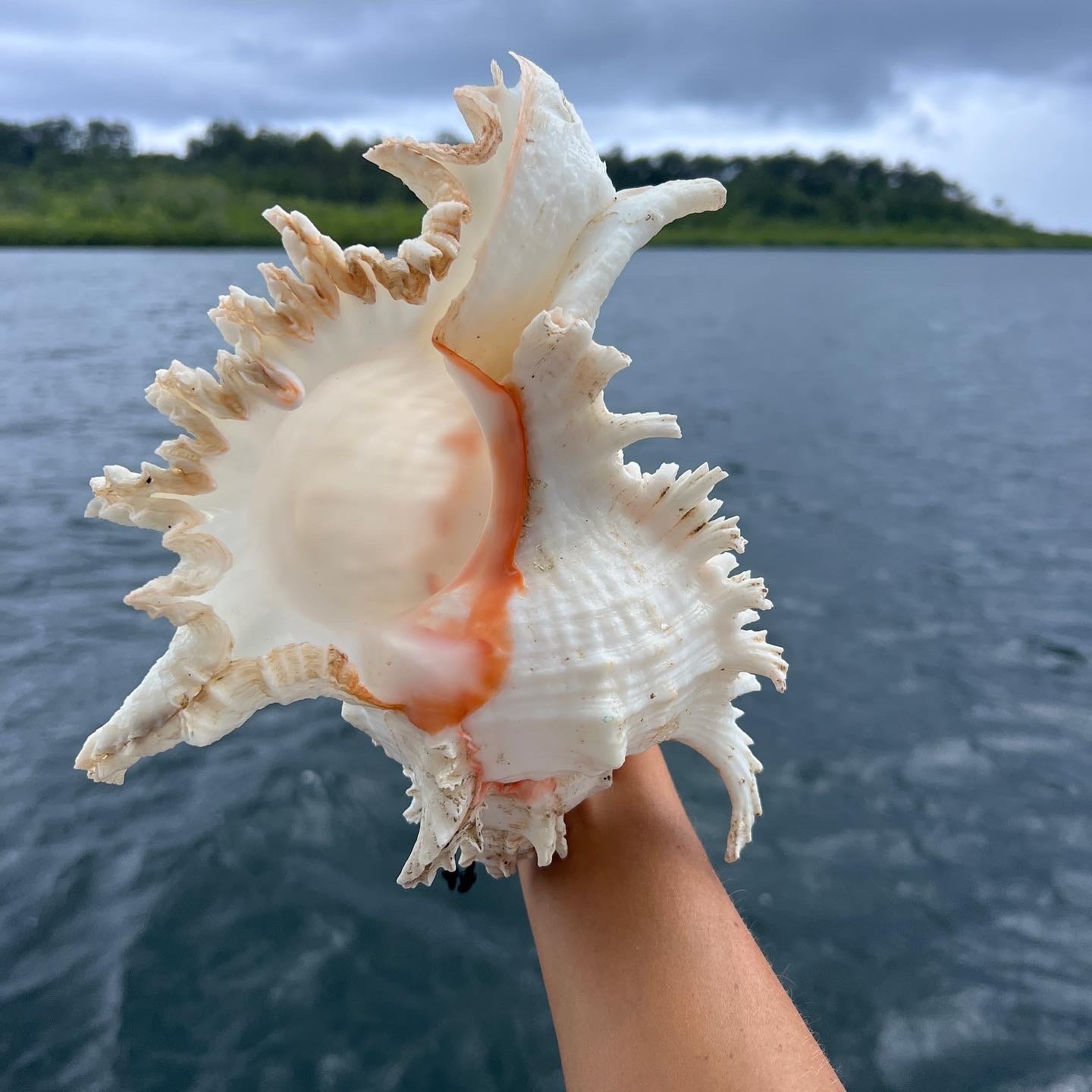
Thank you for letting me into your world - into your head. Both are spectacular.